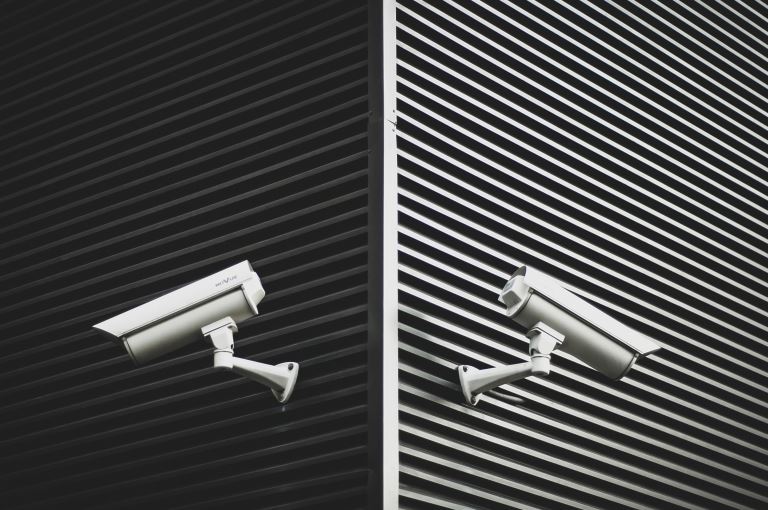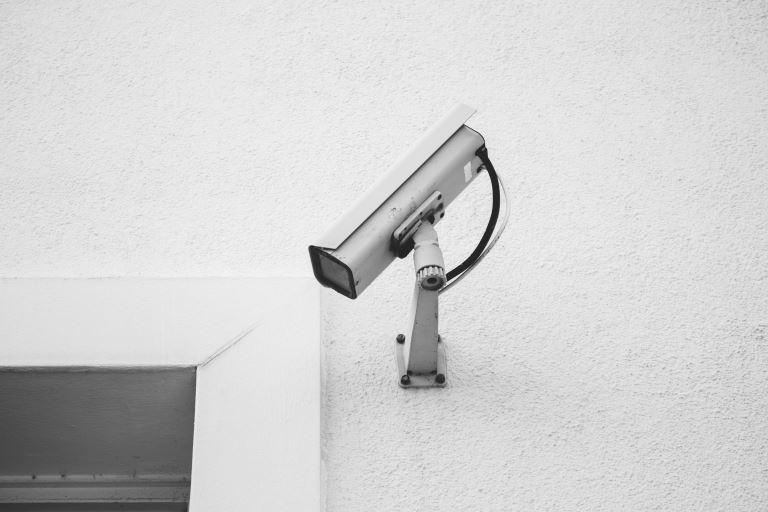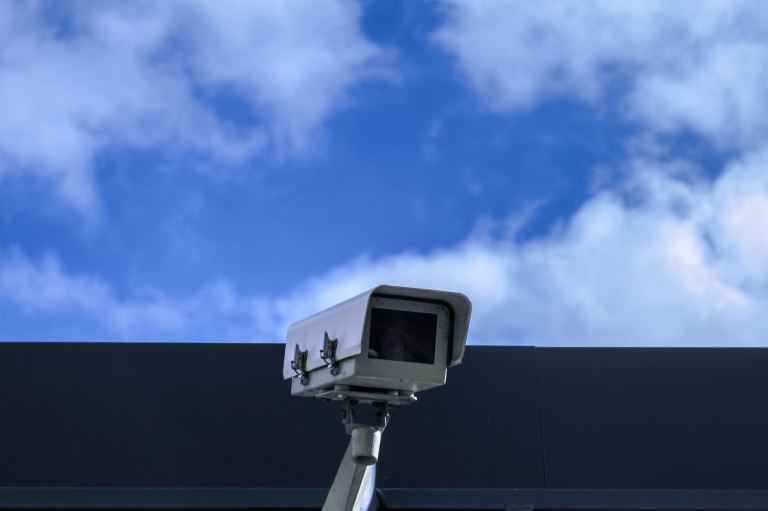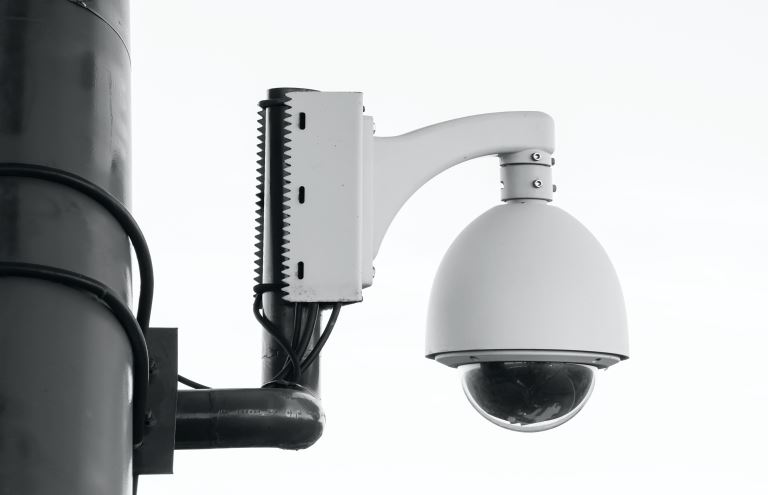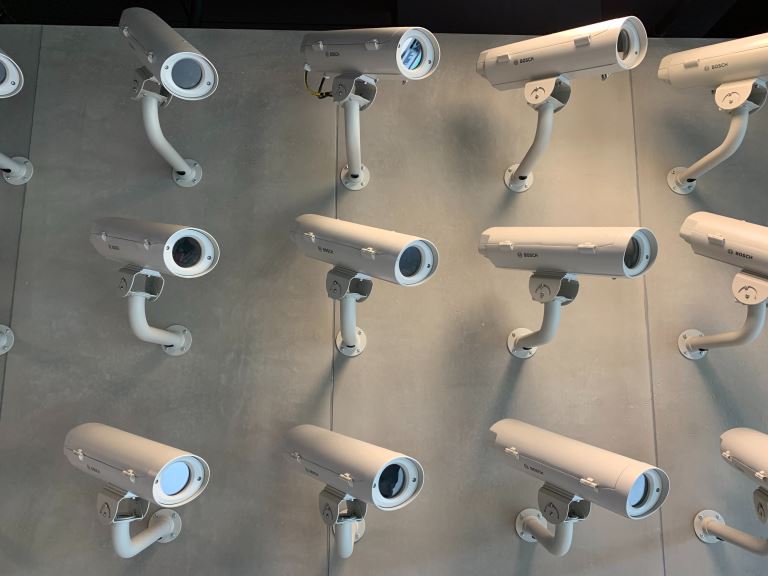
What to do when CCTV cameras power supply stop working?
pThere are a few reasons why your CCTV camera might be having some issuespolliCamera connection and powerliliPoor cablingliliIP address conflictliliFailing to upgrade your software and firmware etcliolpThe good news is that you can fix the issue your
It has been a major issue among people when it comes to how to handle CCTV cameras. The major puzzle is how to tell if the power supply is the issue and what to do, how to detect the problem, why you are getting uncolored pictures, why your footage automatically deletes itself, and much more.
There are a few reasons why your CCTV camera might be having some issues:
- Camera connection and power.
- Poor cabling.
- IP address conflict.
- Failing to upgrade your software and firmware, etc.
The good news is that you can fix the issue yourself unless you have tried measures mentioned in this article and they've failed; you can call tech support for help.
Do you know the different types of CCTV cameras available and which one to settle for? How about their advantages? There are a few ways to view your CCTV camera remotely; no stress about what could be happening in your absence. Read on to find out more about CCTV cameras.
What to do when CCTV cameras power supply stop working?
Your CCTV camera isn't working? No image or video? The problem could be your power supply. CCTV power supply is a necessary part of the CCTV systems-if it fails, your camera won't work as it should. Some of the common issues of CCTV cameras include:
- Not recording any video.
- The night vision is not working.
- The CCTV camera playback is not working.
- Not being able to view CCTV cameras remotely.
- CCTV is not recording 24/7.
- Not showing video, but the LED camera is on.
- CCTV camera not connecting to WIFI.
- The video is blurred or has no color.
- Red and green lights continuously flash on the NVR or DVR.
Ways you can solve your CCTV camera issues
1. Check the CCTV camera connection and power
When your CCTV camera is not working, you should first check if all the connections are correct and the camera is powered up. Refer to the user manual with the camera to ascertain if you've connected the camera correctly. If your CCTV camera is wireless, you'll need to check with the wifi connections-you can test if the connection is okay with a network cable. Confirm if your router is functioning properly.
If using a wired CCTV camera, check whether the power supply and video signal are well transmitted. For PoE cameras, make sure there is a proper and functioning PoE injector or switch. For NVR cameras, check all the system connections.
Check the settings of the security camera
You may find that your camera is not working 24/7, not connecting to the wifi, or not recording at night-these are problems you can solve by checking the settings and setting them up. Some of the CCTV camera's features are enabled by default, while others require manual enabling.
2. Check if the cabling is correct
If your LEDs lights are not on at night, it might be a cable issue-this can result in no video or image recording at night. You can get another cable and connect to the camera to check whether the problem is still there.
3. Reboot the CCTV camera
The golden rule to troubleshooting in IT is to Reboot the device. You can reboot your CCTV camera to get rid of the cache, settings to reset, and connections to self revise. To reboot, plug off the power supply, hold on for a few minutes, and plug in again.
4. Update your camera to the latest firmware and software
One of the major reasons your camera is not connecting to the software is that the software's compatibility and firmware are not up to date. Most of the providers provide consistent updates to increase the camera capability.
Once the firmware is updated, check that the software is updated too. Check on your provider's website often, in case you don't receive the notifications updates.
5. Check if there are IP address conflicts
Each camera should have a unique IP address to receive and send data through the internet or PC network. If another device uses the same IP, it will create a conflict, resulting in the CCTV camera not working.
6. Ask for help from the tech support
After trying all the above measures and your CCTV is still not working, it's time to call for help. Most companies provide free technical support, and you can call or email them. A technician from them will be able to provide a solution to your issue. Give a direct explanation of the issue so that they can give an accurate solution.
Types of CCTV cameras
There are varieties of CCTV cameras to select from. The most known ones are:
| Network/IP CCTV cameras | They are connected over a network that permits the live footage to be anywhere via the internet. |
| Infrared/Night vision CCTV cameras | They use infrared technology in recording images plus videos in darkness. |
| High definition HD CCTV cameras |
They are available in different resolutions ranging from 720p to 4000. |
| Wireless CCTV cameras |
They are most suitable in situations where good presentation is vital hence no destruction from excess wires. |
| PTZ Pan/Tilt/Zoom cameras |
They provide fantastic video quality allowing more control over what is being recorded using the cameras panning sideways, up and down tilting, plus zooming in and out of objects. |
| Dome CCTV cameras |
They are ideal for indoor and outdoor use, possess a discreet shape, and permit the monitoring of wider angles through a 360-degree rotation. |
| Day/Night CCTV cameras | Their main purpose is to work day and night time. The lighting conditions don't matter, and they are perfect for buildings that need round-the-clock CCTV monitoring. |
| Bullet CCTV cameras |
It is one of the common types available, perfect for outdoor use, and best in applications that need long-distance viewing. |
| C-Mount CCTV cameras | They are bigger with detachable lenses that can be switched to adapt to the distance and place of view. |
Benefits of CCTV cameras
- CCTV cameras are among the most effective solution against crime. They will keep your property safe. When criminals learn that you've secured your property under CCTV cameras, they will stay away for fear of getting caught.
- There is a sense of assurance as you can monitor your property from anywhere and know what's happening. In a huge place, you don't have to be all over checking if everything is okay; placing CCTV cameras all over will do the work for you.
- In the event of burglary or break-in, you can check your CCTV for recorded evidence to help solve the crime. CCTV footage in theft cases is enough proof of the act, validating the insurance claims.
- CCTV cameras can also be integrated with some security systems like burglar alarms to give double security.
What is the difference between an NVR and a DVR?
NVR (Network Video Recorder) -It's a recorder that records videos directly from the network with the aid of Cat5 or Cat6 ethernet cables with RJ45plugs. NVR system is used with IP (Internet Protocol) cameras. There are two types of NVR: PoE NVRs, which have ethernet ports for connecting to the PoE cameras. The second one is Wifi NVR; this one doesn't have camera ports; they connect to wifi cameras wirelessly.
DVR(Digital Video Recorder) -This recorder processes uncompressed videos via coaxial cables, compresses them to a digital signal and sends them out. The DVR system works with analog cameras.
Differences between NVR and DVR
| NVR | DVR |
| They are used in IP cameras | They are used in Analog cameras |
| They use ethernet wires or cables | They use coaxial cables |
| They are expensive but still affordable | They are cheaper |
| They have high resolution and high FPS | They have low resolution and FPS |
| They support cloud-based servers | They support local hard disk storage only |
| They use the latest, more advanced technology | They use traditional CCTV systems |
| RJ45 ports for IP cameras | Coaxial ports for analog cameras |
| They process video data at the camera | They process video data at the recorder |
Advantages of NVR CCTV systems
- They record higher quality videos: NVRs are paired up with IP cameras, possessing a resolution of 2MP-12MP(or higher) which DVR systems don't have.
- They are easy to wire: it's a headache to set up CCTV cameras for cabling, but the NVR system makes it easy even for beginners. The NVR wifi gets to the network wirelessly; hence no worry about running wires to the NVR.
- The recorder is flexible in replacement: as NVR uses IP network cameras, you can place it virtually anywhere, like at the garage, backyard, front door, etc., as long as you have a network.
- They are easy to configure and easy to use: you may think NVR involves many network configurations, but that's not it. With P2P NVR cameras, you can set up the system with zero configurations. You'll download the NVR software, and the IP cameras will pop up in the LAN network device list. Read more on LAN here
Factors to consider when choosing a CCTV camera
- Outdoor environment-consider the outdoor natural environment, the camera should have water resistance with good durability and a warranty.
- Coverage area- outdoor monitoring should cover a large area further than the coverage area of one camera and monitor dead spots. Getting a package of NVR and a camera will be an awesome idea. A 4 camera system will build up a
- Comprehensive protection-one in the backyard, one for indoor use, the off-streets windows, and another for any other critical positions you could be having.
- Wiring of installation-outdoor installation wiring may become a headache; a wireless solution will be a good idea. It will make the installation very convenient.
- NVR or DVR- NVR can be a good purchase as it uses more advanced technology, and most manufacturers have also shifted to it.
Does CCTV footage get deleted automatically?
There is no certain answer as to how long footage lasts in a camera or how long it takes to delete itself automatically. How long it lasts depends on several factors like; the number of cameras you have, resolution of the cameras, storage space, the method you are using to record, and the reason for recording.
If your storage is full, you can delete the footage, and you don't have to wait till they automatically delete themselves. Erasing will ensure the CCTV camera will work in high efficiency. Although, you must be the owner of the camera to delete the footage. Here are a few ways you can use to delete your footages
- How to delete CCTV footage from an SD card-If you record your videos using an SD card, you can easily erase them. Make sure first to check the length of the footage and timestamp. If you want to erase a few selected clips, bring out the SD card from the CCTV camera and delete the recordings in your PC through a card reader.
If you want to delete all the footage, search for the micro SD card information and key the format button to erase all footage from the card. - How to delete CCTV camera footage from DVR or NVR-Have your DVR/NVR connected to a monitor, log in to the DVR/NVR, and go to the device settings. Search for the disk management option and format the Hard disk drive to erase all the footage.
- How to delete the CCTV camera footage from the PC-Connect your CCTV camera to the PC, find the footage on the PC through the storage path, choose and erase the specific footage.
- How to delete the CCTV camera footage from cloud storage-Cloud storage keeps your files safe and easy to locate. It also becomes easier to watch, delete, rewind, fast forward or download the clips. After logging in to your cloud storage, you can erase the footages you want.
Open the cloud storage, head to the recording page to view the footage, select the ones you'd like to erase, and click the delete icon.
Can you recover CCTV footage?
You might have deleted footage accidentally and want to get it back. You can recover the footage as it doesn't get deleted permanently; the video data remains on the drive unless overwritten. You can find companies that recover erased footage on hard drives.
The recovery cost will depend on the damage of the CCTV footage, storage drives data capacity, and data loss situation, among many other factors.
How can I view my CCTV remotely?
Checking your security cameras when you are away can give you peace of mind. You can view your CCTV camera remotely using the internet in the following two ways:
1. Checking through Manufacturer's App or Client
Manufacturers App is one of the most convenient ways to view your security camera using the internet. The manufacturer specifically designs this App for the security camera; unlike third-party Apps, there is no worry about compatibility when streaming your CCTV cameras using the internet.
The manufacturer also releases updated software often to unlock more advanced features. Here is how you can view your security camera remotely:
- Download the manufacturer app or client on your PC or phone.
- Install the App and enter the unique ID number (IUD) for adding your security camera to the device.
Click on your camera on the App and view it over the internet outside your home internet.
An awesome thing about this method is that your family members can also view your camera remotely simultaneously. If the App is installed with a stable internet connection, you can check on your loved ones anytime and anywhere.
2. Set up CCTV camera remote viewing via port forwarding
You can also view your security camera via port forwarding using the internet. Here are the steps you can do it:
- Find the IP Address of your CCTV camera how to find your IP Address-this is the first step to watching your security camera via a browser. The CCTV camera Software has a page that shows the IP. Read
- Check the WAN/ external address of your router. A simple way to find your router's WAN address is by using the DDNS service to configure the security camera to the internet for remote viewing. You can also apply this if you can't find your new WAN address. DDNS usually creates a specific hostname for your security camera, saving you from having to memorize the IP number.
- Check the CCTV cameras port numbers and forward router ports-if you have two cameras on your internet and want to view them remotely, and you should use different port numbers for each. Once you get the RTMP port and HTTP port from the security cameras settings, configure the camera for remote viewing.
How can I access my CCTV cameras through WiFi?
A network security camera transmits video data over a connection such as an ethernet or wifi. Wireless IP cameras work by connecting to your wireless connection. You can put the security cameras anywhere within the range of your router. If the CCTV camera is set up properly, you can view the footage anywhere with the right connection.
To view your CCTV camera using wifi, you need wifi plus a router with a card slot, LAN option for internet connection, and LAN port for connection to the camera. You will insert your card in your router and connect your camera using the LAN cable; then, the camera set up will be automatically connected to the wifi.
Conclusion
It would be best to have a CCTV camera at your home, office, backyard, garage, building, etc. It has now become a vital need to keep your property protected and be sure of its safety. There are many options of CCTV cameras to choose from with varying prices. Make sure to go for the one that suits your budget and needs.
You may go for an NVR or a DVR one; they both have their benefits and disadvantages. There are so many factors to consider when getting one, and it is a necessity.
